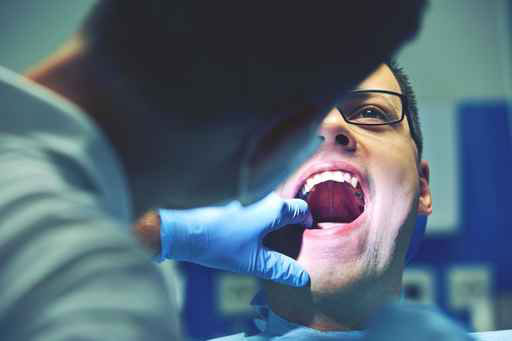When you bite down you feel a sharp pain. It quickly disappears and perhaps you ignore it. You avoid certain foods or chew only on one side of your mouth. Does this sound familiar? If so, you may have a cracked tooth.
What causes a cracked tooth?
A tooth may crack due to:
• Chewing on hard objects or foods such as ice, nuts, or hard candy
• An accident, such as a blow to the head
• Grinding and clenching your teeth
• Uneven chewing pressure
• Stress on a tooth
• Loss of a significant portion of tooth structure through wear, large fillings, or other restorations
• Exposure of tooth enamel to temperature extremes, such as eating hot food and then drinking ice water
• Brittleness of teeth with root canals
How can you tell if a tooth is cracked?
It can be difficult. You may not even be able to tell which tooth hurts or whether the pain is from an upper or lower tooth. A crack may appear as a hairline fracture, running along the tooth. It often is invisible to the eye and may not show even on an x-ray. You can help your dentist determine which tooth is causing the problem by noting when and where you have sensitivity to heat or cold, to sweet, sour or sticky food and approximately where the pain is when you are chewing.
Why does a cracked tooth hurt?
A cracked tooth may hurt because the pressure of biting causes the crack to open. When you stop biting, the pressure is released and a sharp pain results as the crack quickly closes. Even though the crack may be microscopic, when it opens, the pulp inside of the tooth may become irritated. The pulp is a soft tissue that contains the tooth’s nerves and blood vessels. If the crack irritates the pulp, the tooth may become sensitive to temperature extremes. If the pulp becomes damaged or diseased as a result of the crack, endodontic (root canal) treatment may be necessary to save the tooth.
How is a cracked tooth treated?
Depending on the size and location of the crack, treatment may vary from bonding to a crown to hold the crack together. This may include endodontic treatment if pulp is involved. A severely cracked tooth may need extraction if the tooth cannot be saved. Your dentist will assist you in making the best decision for treatment. Tiny cracks are common and usually do not cause problems. Regular dental checkups are important. They allow your dentist to diagnose and treat problems in the early stage. If you continue to have pain, avoid chewing on that side of your mouth and call your dentist.
Originally printed by the American Dental Association, 2007










